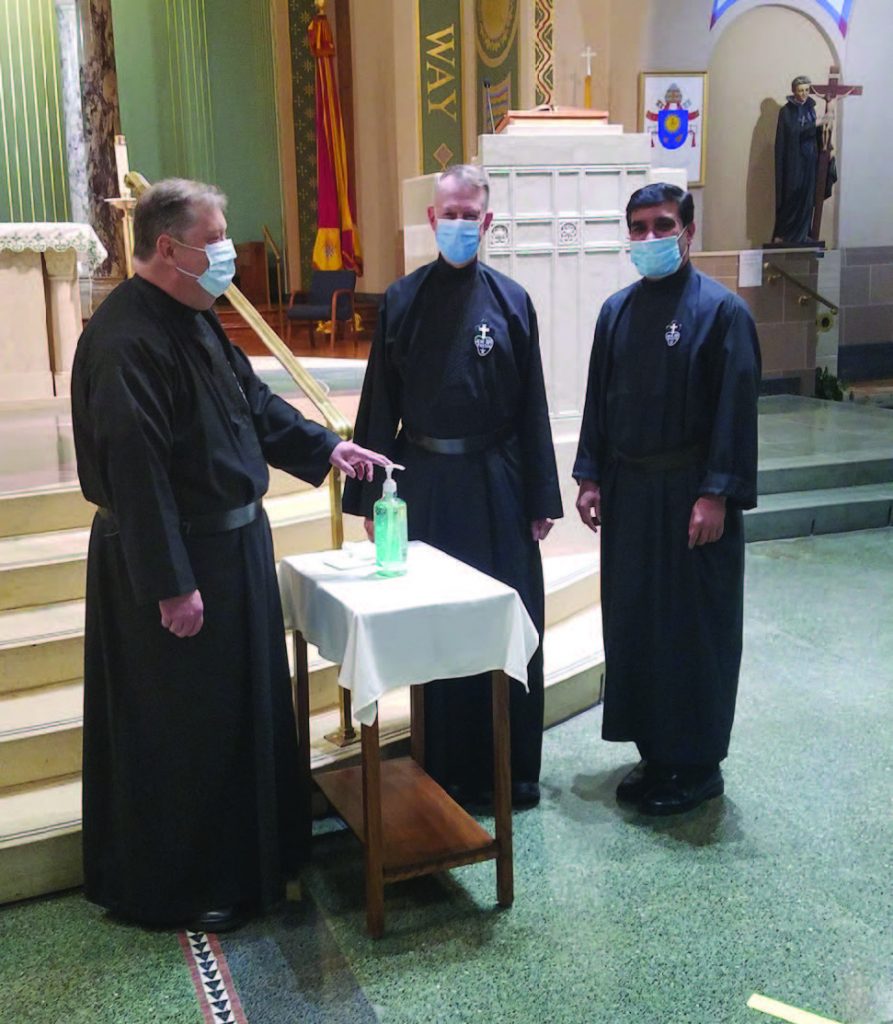SCRANTON – As many parishes in the Diocese of Scranton faced declining financial contributions due to public Masses being suspended, several turned to Paycheck Protection Program (PPP) loans from the U.S. Small Business Administration for help.
Some recipients of PPP loans say between the drop in Sunday Mass offertory and Holy Week collections at Easter, in addition to the cancellation of major fundraising events, keeping all of their employees on payroll would not have been possible without the aid of PPP loans. The effect of the COVID-19 pandemic on operations of the Church and the economy and its long-term impact on parish operations remains uncertain for the foreseeable future. They stress the loans allowed them to protect jobs and continue vital human services across all 11 counties in the diocese.
The federal program was established during the height of the COVID-19 pandemic to provide loans to small businesses to guarantee eight weeks of payroll-related costs and other defined non-payroll costs to help those businesses remain viable and allow their workers to pay their bills. The PPP loan program was developed as part of the $2 trillion Coronavirus Aid, Relief, and Economic Security (CARES) Act signed by President Trump in the spring.
Businesses and all religious entities that have 500 or fewer employees were able to apply for loans.
In the Diocese of Scranton, the program helped not only parishes, but schools and social service agencies continue their critical ministries as the region struggled with the coronavirus and various stay-at-home restrictions.
The Diocese of Scranton itself applied for and received a PPP loan of $1.2 million which was used to fund payroll-related costs for employees. Prior to receiving the loan, the diocese had announced furloughs for more than two dozen administrative staff members in March. The federal money enabled the diocese to rescind those furlough notices, in addition to keeping other employees on the payroll to provide support to parishes and those in-need in our community.
In addition to the Diocese of Scranton itself, to date, 92 other diocesan entities have received loans totaling $10 million. Those entities include:
- Catholic Social Services
- 72 parishes
- 19 Catholic Schools
Parishes, schools and charitable organizations, such as Catholic Social Services, are separate legal entities from the Diocese of Scranton. They are like any other small business that employs local people, provides healthcare and supports the community. As such, each entity needed to apply for PPP loans individually and many received diocesan support and guidance in doing so.
The loans helped Catholic Social Services continue providing meals and shelter to vulnerable and at-risk members of the community, regardless of religious beliefs. For example, during only the months of April and May 2020, when the PPP loan money was available, the Saint Vincent de Paul Kitchen in Wilkes-Barre served 9,676 meals. During that same time period, the three homeless shelters in the Diocese of Scranton combine to provide 2,149 individual nights of emergency shelter to people in need. The impact of those federal dollars played a tremendous role in maintaining Catholic Social Services’ ability to continue its mission.
The drop in Sunday Mass offertory at parishes also put a strain on parishes’ ability to support Catholic education and the Diocese of Scranton Catholic School System. Tuition-alone does not cover the cost of operations.
Immediately upon the closure of Pennsylvania schools, the Diocese of Scranton Catholic School System transitioned to distance learning on the next school day. Monies from the PPP loan allowed the Diocese to keep hundreds of teachers employed and students learning during the pandemic.
Each parish made its own decision about whether to pursue federal assistance. While 72 parishes received loans, 46 others did not apply. The amount of loans for parishes that received funding varied widely based on payroll amounts and need. For example, one parish in Wayne County only requested and received a loan for less than $1,300.
In a May 20, 2020 article with Catholic News Service, Patrick Markey, executive director of the Diocesan Fiscal Management Conference, discussed the importance of the PPP loans.
“This was payroll protection, not church protection, not business protection. For small organizations – parishes, churches, synagogues are small organizations – they could apply for funding based on their payroll,” he said.
In short, Markey said, “this money went where it was supposed to go.”
No PPP loan money was used to fund the Independent Survivors Compensation Program for survivors of childhood sexual abuse in the Diocese of Scranton.



